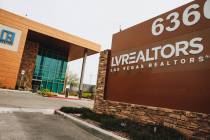Insurance policy differs; make sure it protects directors, officers
Homeowners associations are typically required to carry directors and officers (D&O) insurance to protect their board members and officers from exposure to monetary and non-monetary complaints and claims. D&O insurance can protect board members and officers, committee members, volunteers, staff members, managing agent and property management firm from allegations or lawsuits resulting from the decisions they make while in service to the association, as long as those decisions were made within the scope of the insured’s duties, performed in good faith.
Both board members and managers may not be aware these are “claims-made” policies, not “occurrence” policies. What’s the difference? Many liability policies are occurrence policies, which means they provide coverage for accidents or incidents that occur during the policy period. Not so with D&O policies. These are claims-made policies, so they typically cover claims that are made while the policy is in force, regardless of when the incident or conduct may have taken place.
If an association has a D&O policy in place when the claim is filed, it can cover the action of its officers and board members — past, present and future — from previous and future acts. Ask your insurance broker if he or she can add a retroactive date and/or full prior acts clause to your D&O policy — ideally, dating back to when the association was incorporated. This will provide coverage for all incidents from that date forward, even if the policy was purchased at a later date.
Directors and officers policies cover defense costs (to cover the association’s legal fees in defending the case) as well as indemnity costs (to cover the judgment or settlement amount.) Many policies offer “defense outside the limits,” an unlimited amount of money to defend claims, while the entire policy limit is preserved to pay any judgment or settlement.
Certain directors and officers policies exclude coverage for employment practices and discrimination claims. You may want to ask your agent if employment practices and discrimination claims can be included in your D&O and if so what would be the cost, as the association could be named in a suit filed by an employee of a vendor.
Claims-made policies require care in these two areas:
1. It is critical to report claims right away. The clock starts ticking as soon as the board learns of the issue and if the matter isn’t tendered quickly, coverage can be denied.
2. It is also important to disclose potential claims — any situation that may trigger coverage — such as an email from an angry owner saying “I plan to sue the association.”
During renewal time, carefully review your application for D&O insurance, even if your broker prepares it for you since it must include these potential claims, as you do not want your insurance company to deny any future claim when you inadvertently omit stating the potential claims on the application.
Q: I saw your column in our Sunday newspaper and thought you might be able to help us with an issue with our HOA.
Last week we received a letter from our management company that our reserve funds needed to be used eight years earlier than expected for new roofs. The total assessed for each property was $4,000. We are already paying $265 a month and this would add another $166.67 to our monthly payment.
Can a board vote on something like this without a vote from the owners? Why can’t they use what they have in reserves for the roofs and then build up the account with what we are paying monthly.
What recourse do we have if we can’t pay this? It seems as if we are at the mercy of an association and really have no say in what happens.
I appreciate any advise you can give us in this matter.
A: In a reserve study, the costs for the repairs, replacements or restorations of the major components of the common elements (areas) are estimated by the reserve specialist. The specialist in calculating the dollars needed also considers the conditions of the major components, as well as their remaining life expectancy. In your case, the board has directed the management company to inform the homeowners that the roofs will need to be replaced eight years earlier than expected.
As a result, an assessment of $4,000, payable in monthly payments will be charged against the homeowner’s account.
You raise an interesting question. If there are available funds existing now in the current reserve account to pay for the roofs, why is the association asking for this additional assessment? You should request a copy of the reserve study. There is a section in the reserve study where the reserve specialist lists the various components by year of when they should be repaired, replaced or restored and their estimated costs. By utilizing the existing funds for the roofs, which are supposed to be a future expenditure, the association risks the possibility the other components that are to be addressed prior to the roofs would have inadequate funds when their time frames are reached.
Now, there is a section in the reserve law, Nevada Revised Statute 116.3115 (2b) that states, “…not withstanding any provision of the governing documents to the contrary, to establish adequate reserves … the executive board may, without seeking or obtaining the approval of the units’ owners, impose any necessary and reasonable assessments against the unit in the common-interest community. Any such assessments imposed by the executive board must be based on the study of the reserves of the association…”
You would need to review the governing documents of the association, as a special assessment vote by the homeowners may be needed per the above state law.
I am sure that many of my readers are asking the same questions that I am asking myself. What happened to the roofs that they need to be addressed eight years sooner than projected or why is the reserve study so off? You may want to address these questions to your management company or to the board of directors during the second homeowner forum at the next board meeting.
Barbara Holland is a certified property manager, broker and supervisory certified association manager. Questions may be sent to holland744o@gmail.com.





















